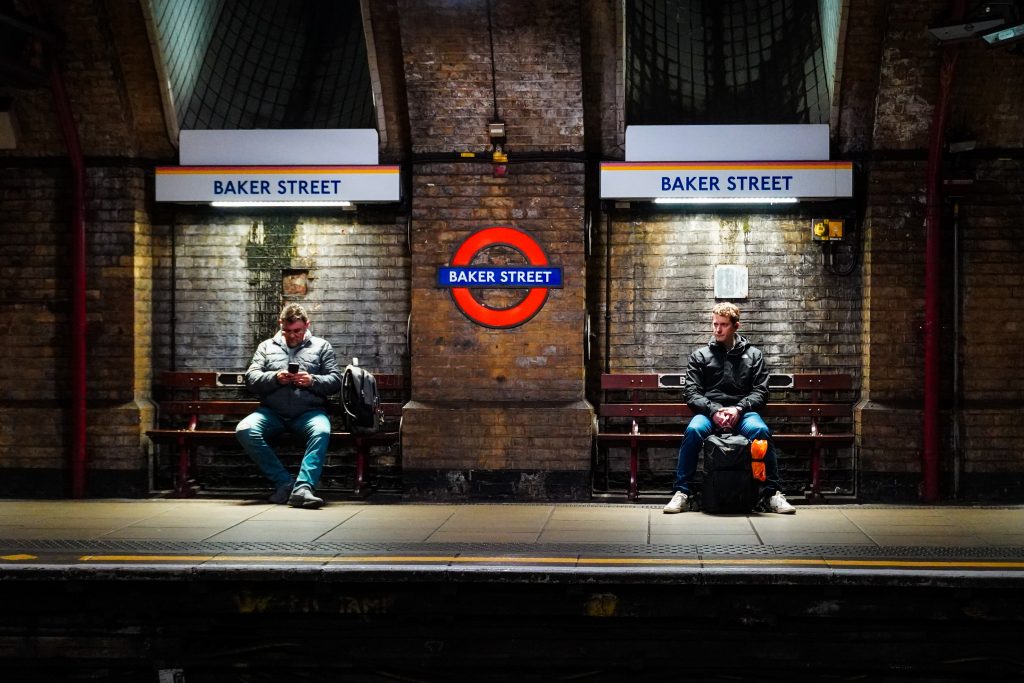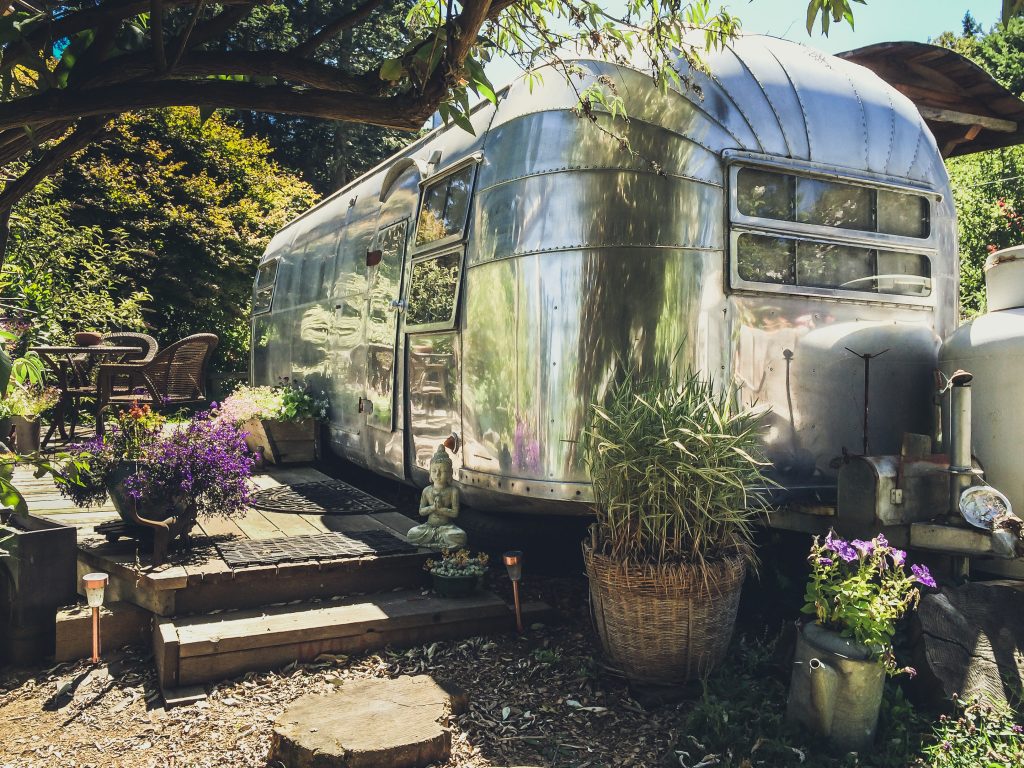Get out of your comfort zone
When I started out as a consultant, I provided project management consulting, mainly within technology functions of large organisations, or within technology specific companies. My view of the working world was not constrained so much by geography; if there was a role that looked right for me, I was willing to go to that location. I didn’t stay in the location I currently resided and tried to find a role nearby or tried to make commuting long distances work. It just doesn’t.
I had no ties, other than my friends and family and even then, that can be done from anywhere. I even went so far as to spend time in New York, Sydney and London to understand that if I am going to have a career somewhere, which country should it be? I concluded London had the most to offer me for as far as my aspirations could take me.
When moving for my first career roles, I didn’t let the fear of not knowing a place stop me.
Was it daunting? Yes.
Did it take me out of my comfort zone ? Yes.
Was it energising in the process? Absolutely.
I may have moaned in my head about all the admin stuff that goes with moving but I soon got over that, and when I look back now, I am glad I pushed myself to do these things. Why? Because they set the precedent for years to come.
Stages of Life – Stages of Comfort
If you are young and single, the few ties that you have enable you to be the most mobile you can be. You may want to go travelling, why not? Experiences of other communities, cultures, lifestyles are enriching and enable you to have more considerate decision making capabilities. Combine making an income with travelling and the enrichment can last a lot longer.
Working for technology companies enables remote capabilities. Corona Virus in 2020 has focused the reality of how many roles can do that without affecting performance. It has also highlighted the inaccurate studies recommending open-plan work-spaces were a good thing to move to. The reality is everything in moderation.
You need access to people, in-person for decisions to be made efficiently and with meaning. You also need individual time for delivering the work resulting from those decisions or thinking about the next moves your role/responsibilities need to take to keep progressing and adding value.
As time progresses you may become ‘attached’ to an individual, you may marry that individual, settle down and have children with them. If this is important to you consider if you want to travel, how far you want to travel and for how long to achieve what you want to do before you are influenced to change this approach.

If home ownership is important to you, you will automatically be restricting your capability to travel to office locations where you need to carry out your role. If you are a permanent employee, your workplace almost dominates your choice of location dependent upon the role you are engaging with. If you are a consultant, these rules do not apply anywhere near as much — you can choose to decide where you want to live independent of your work. You agree contracts where you determine where you work and when. This means if you agree to only visit the Client’s office twice or three times a week, can you do it commuting, or will it require an overnight stay? For either choice, factor in travel costs into the rate you charge.
If children are important to you, in the UK, you can stay mobile if you want, but if you value your time with your children, then certain geographies may be off limits. For example, a 12-month contract in UAE, or Australia, is possible — but will you re-locate your children? Are they still in primary? Then it is easier to do than if they are in secondary school or later. How much do you value stability for your children’s education? Either that, or you have a very tolerant partner who can take care of the children whilst you are away. Bear in mind, the more children, the more difficult it will become.

Trains, Planes & Automobiles
Life as a consultant can involve a lot of travel. I have had the fortune of travelling all over the UK, most countries in Europe, India, Australia, USA and Canada. I cannot say that I will ever experience such a breadth of culture if I remained an employee for a one, or a few companies throughout my career.
Travelling forces you to think about your mobility, your productivity and how you can make the most out of your time. If that contract takes 1.5 hours each way by car, but 2 hours by train each way — which mode of transport are you going to take? Another example, it takes 1 hour to fly there or 4 hours by train?
In both examples, I chose train. Why? Two main reasons, personal productivity and environmental considerations. Travelling by car for 3 hours a day during peak times to deliver what you have contractually agreed isn’t my idea of fun. To me, that is 3 hours wasted, sitting in traffic and degrading my outlook on life. It is unproductive and demoralising.
Convert that to 4 hours a day by train and my costs are on par with driving, but I gain two advantages, the total environmental impact is less and I gain 4 hours where I can do something with that time. I could use that time to deliver value for my Client. This means I can arrive slightly later and leave slightly earlier from the Client location. I miss a significant portion of rush hour as an added benefit. Further, I could split my time in the morning to spend one hour catching up on my own administration, such as emails, pay bills or whatever is pressing, and one hour delivering value for the Client. I then reverse it for the way back, finishing up Client work to tie the day off and then clear out any other admin that needs sorting. It gives you important time to prepare for your day and wind down from you day on the way back.
The same principle is applied for the second example of flying 1 hour by plane. The 1 hour is a misconception. There is the 30mins to 1 hour to get to the airport, park, further time to go through check-in — security checks and boarding before the one hour commences. The same once you have landed. The 1 hour suddenly becomes 3 hours. Adding one hour where you can do something for 4 hours as opposed to only 1 and losing 2 provides far greater value to you — but just as importantly, to your Client.
Considering your travel, the cost and how this will happen when negotiating with a Client is vital. Ensuring the cost of this travel is baked into your fee must happen.
Don’t feel guilty about it, if you genuinely believe that taking the train as opposed to other methods is going to work better for you and in turn your Client, then who is to argue? Remember, the Client believes you have the skills to deliver value for them, so make sure you can live up to that by making sure travel supports this promise, and not devalues it.

European Travel
The above examples just consider travelling in the UK. What about travelling further? Perhaps there is a contract in another country, but to offer the real value you agree to, you need to spend weeks there at a time. At what stage of your personal life are you? Do you have a partner to consider? Do you have dependents — do you really want to be away from this family for prolonged periods of time?
A past Client was located near the south of Spain, it required me to be there most of the time for me to find the right people and deliver the value I agreed. The programme was to last around 12 months. The initial arrangement was to fly out Monday mornings, stay local to the Client during the weekdays and fly back Friday nights. Whilst novel to begin with, delivering optimum value was not going to be sustainable for the longer term. I couldn’t do anything with the travel time. It was split into short steps for each part of the travel that meant little productivity could be gained whilst travelling. I had agreed with my wife this routine was for the first month. If the contract worked out, changing the travel arrangements. This meant re-locating my family from their current location to be nearer to the contract. Travel became a commute instead of a multi-part journey that prevented productivity to be achieved.
Transatlantic Travel
A Client in North America meant travelling to their HQ on a frequent basis. It was a complete end to end digital transformation. To offer real value in the desired time-frames this cannot be done completely remotely. This is also not commutable. I had a choice; pass up on the work or work out arrangements that will work for myself and my family. I chose the latter because my wife and I worked out how to make it possible. Compromises had to be made by both of us, but it was possible. I would spend two weeks in North America and one week in the UK, on a constant rotation for the duration of the agreement. When it was the summer holidays, the family would stay with me in North America for extended periods of time.
Did it work out? Yes and No. I am a systems thinker, I have a curiosity in how organisations behave, how their processes work and why they have modelled themselves in the way they operate. To explore the same observations of organisational behaviour in other countries was a big appeal for me. I learnt a lot from it and I truly believe I provided a lot of value. I kept a top four consultancy in line and showed them how they could do their own job four times more efficiently. The money was good but any of that gain was consumed by the cost of arrangements to support the family whilst I was away. I was able to carry out a full 8 hours on the plane, my office for one day was the plane — and when I landed, there were still four working hours on that continent. I was working 12–14-hour days as my body constantly tried to adjust itself to the changing time zones. I was able to fly back overnight, having delivered value and then travelling whilst sleeping — it felt productive.
However, I was alienating myself from my home life, the arrangements at home to support my wife were not working and the travel arrangements were, over time, degrading my performance. After 11 months of a 2-year engagement, I resigned. The work/life balance was not right, and I didn’t want to make the Client, nor my family unhappy.
Why am I telling you this? Because I want to highlight the importance of what travel can do to adding value, both positively and negatively so that you have a more informed picture when deciding for yourself.
You are not alone
An independent consultant can be lonely role if you perceive it to be. The more you travel and the longer you travel for can exacerbate this. No beating around the bush here. Waking up at 5am or 6am, travelling for 4 hours a day, watching the daylight mornings turn into winter darkness — day in — day out — is draining — period. Travelling 13 hours from point A to Point B for Trans-Atlantic travel for repeated duration is draining — period. If you let this fact get to you, you will drown — so don’t let it.

Your mindset is vital.
Why did I agree to travelling so much? Why did I choose the travel methods I did? What was driving me? Put simply, goals. We had agreed a vision of what our life would look like during and because of the contract. I focused on making these a reality and everything that tries to stop me from doing this falls away.
The European travel example worked because home/life balance worked. Travel was reduced and by the end of the contract our vision had become a reality. Engaging in a contract in another country took out of your comfort zone, moving my family took me out of my comfort zone but no matter how much internal whinging was going on, the end vision kept me going. As a result, I look back at that time and what I achieved, both personally and professionally, and I do not regret a single moment.
The Transatlantic example is used because whilst I felt productive, it was an increasingly lonely experience. Whilst this was recognised and supported by the Client, there were no real ‘alternatives’ to the arrangements currently in play. A study on the darker side of hypermobility echoes the impact of frequent travelling on an individual. Even the film ‘ Up in the Air ‘ strikes a resonant tone.
Make sure you can strike the right balance. If for one moment you think it won’t work or impact your values too much, you have your answer.
Home is where you lay your head
Above is testing how far you are willing to travel to deliver the value you agree to provide a Client. As a specialist in your field, and to deliver the roles that appeal to you the most, you must be prepared to accept that you will not always be ‘home’ every night of the week.
The European example highlighted that temporary relocation worked well. The Transatlantic example meant having two homes, the professional home and the personal home. Consulting in the UK can be both the European and Transatlantic examples on smaller scales.
You can either focus on delivering value that enables you to commute to and from your home on a daily basis, or you can commit to Clients that afford you the ability to stay locally.
With the latter approach, a number of ‘lifestyles’ become evident:
AirBnB
AirBnB can be very cost efficient when looking at it from just an accommodation cost. However, a lot of short-term places do not offer their kitchen, so how are you going to feed yourself each night? Will you eat out each night? That’s an expensive choice to carry out. Does your contract afford you the capability to do that?
How will you have breakfast in the mornings if the AirBnB place does not offer kitchen facilities? Eat in the room provided, utilise the Client’s kitchen facilities, or eat out?
See my article ‘Cloudy with a chance of Consulting’ for more on this topic.
Would it be better to secure a longer-term rental of an AirBnB place that secures the kitchen and enabling you to cook and have breakfast? Does the cost comparison add up? Does the added benefit of having somewhere over a weekend and enabling your loved ones to visit a new location for a weekend appeal? What makes you happier?
Hotels
You could choose hotels and use any of the various online booking sites to secure rooms at a hotel near to your Client location. Your room is secured and you can get breakfast and evening meals without the need to cook if you want to. You can also rack up the reward points and convert them into cheaper hotel nights to spend with the family as a result.
MotorHomes
Yes, motorhomes or caravans. Campsites these days offer showers and food facilities as well as your own personal space. If you have a caravan or motorhome, you need only pay pitch fees. You could even rent out a static home and use that as a base. If you really want to save on fees, why not see if the company car park is a place to pitch? A google employee did just that.

The point I am making here is there are plenty of options available to you here. Don’t reject Clients simply because they are not commutable, consider what can be done to make it happen.
If done right, you can begin to explore parts of the UK you may never have ordinarily done — or even better, budget it so that they provide a base with which you can explore places. Not only will that enrich you and your loved ones, you will perform better delivering value for your Client as well.
The world really is there for you if you want it to be
Life as a consultant can take you far and wide if you want it to. You can travel to many places and use this as a base to be able to explore places you may not have even considered before.
If you are prepared to consider the logistics of travel and accommodation as part of the overall journey for each contract then take the time out to consider the view — you might just enjoy the scenery unfold before you.
Would you like to know more?
If you found this article useful, do let me know. Your feedback will encourage me to do more. If you want me to write about anything specific about consulting, get in touch. I plan to release more under the title “Consulting Life” so follow/subscribe to be notified for the next one.
The Consulting Life series, and this article in the series is also published through Medium. Read Here..
Featured photo by Christoffer Engström on Unsplash


